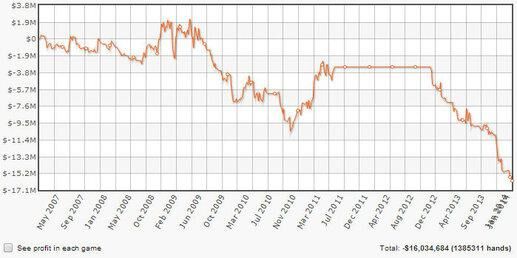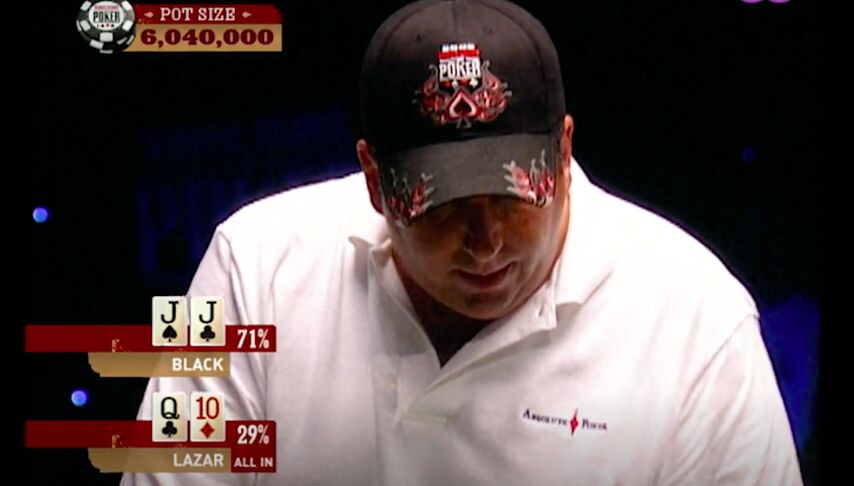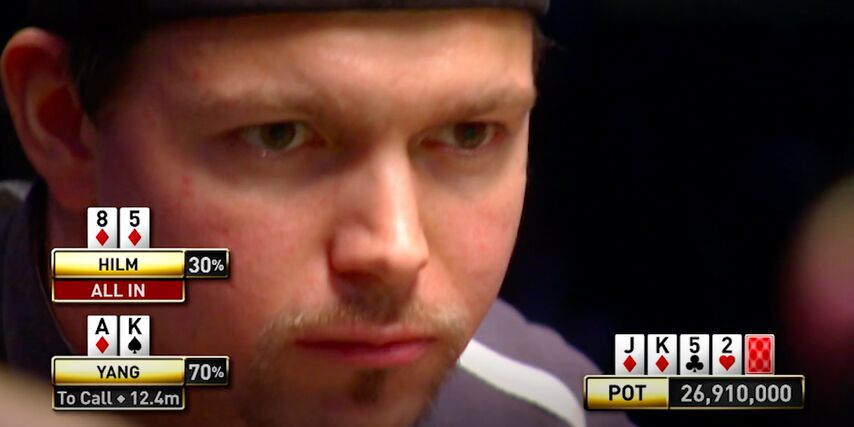As long as poker has been around, tilt has been an inevitable side effect for players. Of course, when it comes to poker tournaments, only one player is ever truly happy, and that’s the winner. Along the way, several players will take bad beats, and often times, that will lead them to go on tilt, meaning they spewed off the rest of their stack by making loose calls, or big gambles that don’t make sense. We take a deeper look at the term tilt, and how players go about getting through it.
What is the meaning of tilt?
Tilt is quite simply a term for when your play is adversely affected by something negative that just happened recently at the table. That could be after you have suffered a bad beat, or lost a massive pot that was a coin flip for example. Poker is a swingy game with a ton of emotion, and some players are negatively affected by certain developments at the table. Tilt can be a major leak in certain players’ games if they are unable to keep their emotions in check. Players who are on tilt will often play various hands drastically differently than they normally would, and it could result in losing another massive pot, or in some cases, all of your stack, just because you couldn’t handle your emotions.
How does tilt affect your game?

This should be pretty obvious by now, but tilt will almost always affect a player negatively. Sure they could decide to “gamble” in a spot they normally wouldn’t, and win a massive pot with a hand like Jack-Ten suited or a low pocket pair. But more often than not, tilt will lead to one thing: losing money. When a player is fuming at the table, they tend to play more aggressively, over eager to win back any money that was lost in the previous hand or group of hands. Some incredible multiday runs at the WSOP and WPT over the years have all been undone in a matter of minutes because a player simply lost their head after taking a bad beat, or making a big fold and getting shown a bluff. There are a couple famous examples of this in the next section.
Best examples of tilt from TV poker

As expected, the higher the stakes, the bigger the bad beats, meaning the bigger the bad beats, the more tilted a player can often be. One of the most obvious cases of tilt ruining a player’s tournament was Scott Lazar at the 2005 WSOP Main Event. In a previous hand, Lazar made a tight fold preflop in a big pot, a hand where he would have ended up making quads to win a tournament-defining pot. Because he folded that hand, he lost his cool, and made back-to-back bad calls, including calling all in for his tournament life with just Queen-Ten preflop. He emphatically and quickly called both times, saying that he was ready to gamble. He lost both all ins, busted in 5th place, and will be left to wonder what could have been if he had managed his emotions better.
Another perfect example is Phillip Hilm at the 2007 WSOP Main Event. He entered the final table as the chip leader, but after he lost a pair of big pots to eventual champion Jerry Yang, Hilm lost his cool, making a bad move in a massive pot to bust to Yang in 9th place. First place that year was $8,250,000, and Hilm earned just $525,000 for 9th place.

Best ways to combat tilting at the table
As with everything, practice makes perfect, and in dealing with tilt, the same can be said. It’s understandable to go on tilt when you are starting to play, but the more experience you get, the more used to bad beats and losing big pots you will inevitably get. As a result, you should be able to get a hold of your emotions, and not go crazy as much. Some players find that it’s better to leave the table for a little bit, happy to miss a few hands knowing that more disaster could occur if you stay and play whil tilting. It’s really up to you individually, but accepting that bad beats are an inevitable part of the game will certainly get you on the right start. In a vacuum, the hand following a bad beat has nothing to do with the previous one, so try to keep your emotions in check, and as a result, you should see your tilt go down.
Tilt, the TV Show

This is a deep cut for poker fans of the poker boom from years ago, but ESPN did try to create an original TV series, and they just so happened to call it “Tilt.” The overall story was fairly similar to the movie Rounders, where a young gambler losses everything in a big poker match against the villain (played by Michael Madsen). Eventually, he gets revenge from the inside by befriending the player and learning his techniques for cheating. Unfortunately, the show lasted only one season.
Have you gone on tilt while playing on sites like partypoker and Pokerstars? Let us know about those stories in the comments!














